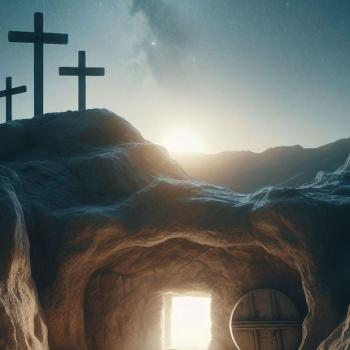Every creation process is three-fold: the initial idea that gives it life, the building of that idea into something real, and the culmination and actualization of that idea into a complete independent entity. When we take pleasure in something new, we are essentially taking pleasure in this creation process. Therefore, when we encounter such an experience we bless God—the Layer out of this process—"for giving us life, sustaining us, and bringing us to reach" this point of experiencing Him through His process of creation.
In addition to making this blessing whenever one derives significant benefit from an event, one is supposed to make this blessing upon eating seasonal fruits of a new season for the first time, wearing a significant garment for the first time after one has acquired it, and performing a seasonal mitzvah for the first time that year. That is, when the newness of the creation process is experienced within one's body (eating new seasonal fruits), outside one's body (wearing new clothes), and with one's spiritual "body" (performing a seasonal mitzvah) we bless God on it.
(Note: According to Kabbalah, humanity, in the form of the all-inclusive soul, Adam, originally had a body of light. As we have mentioned, light always refers to seeing clearly. Since what it means to see clearly on a spiritual level is to be on a plane of God-clarity, Adam's body of light would seem to us as a paradox. A body, as we're familiar with it, implies a limited quantifiable nature and a perception of independence from God, whereas light implies clarity on the reality that all is God. So it would seem that Adam's body of light indicates that Adam had a sense of independent existence while simultaneously being clear that he exists as an aspect of the One Infinite God.
When Adam sinned, however, this body of light became a body of skin and, thus, physical and quantifiable without the light of God-clarity. The interrelationship between the body of light and the body of skin is hinted at by the Hebrew words for light and skin, which are of similar spelling and pronunciation, ohr. In this post-sin-in-the-Garden-of-Eden era, the human being is left to build his body of light by way of doing the 613 commandments of the Torah with his body of skin, which is made up of a corresponding 613 parts according to Kabbalah. This body of light that one builds by doing commandments is referred to as his "Rabbinical Garb" since it is by way of the Rabbinical teachings of the Oral Law that one fulfills the Torah's commandments and builds his body of light.)
Vision of God
Contrast the individual with the awareness of God running the show and doing all for the best with the individual who cuts God out of the picture. As similar as these two people's lives may seem to the outsider, they could not be qualitatively more different on the inside. Where one sees everything as intrinsically meaningful and of absolute importance, the other sees everything as intrinsically meaningless and of no real importance.
The trait of seeing God in something is referred to as having a Good Eye, whereas the trait of not seeing God in something is referred to as having an Evil Eye.
In Judaism, the eye often refers to one's intelligence, in particular when it comes to how one views and interprets a situation. For example, the Sanhedrin, the High Court of the seventy most scholarly rabbis, are referred to in the Tanach as the "eyes of the congregation" since they were involved in using their intelligence, wisdom, and understanding to decipher and interpret the law in the most tricky and important of cases.
Good and Evil, as mentioned in previous articles, are respectively defined as connecting to God and disconnecting from God. After all, if we are here for the purpose of building and facilitating a relationship, association, affiliation, and connection with God, Good is that which brings us "closer" to God, and Evil is that which brings "distance" between us and God.
It comes out that what we mean by the difference between a Good Eye and an Evil Eye is to be approaching a situation from the perspective of God-connect versus to be approaching a situation from the perspective of God-disconnect. The individual with the Good Eye views all that he sees as being attached to and coming from God for a constructive purpose, whereas the individual with the Evil Eye views all that he sees as random, non-consequential, and disconnected from any relevant source.
One aspect of our personal development and refinement is to strengthen the Good Eye trait within oneself and manifest God-awareness in this God-unclear world. Ultimately, it is by way of seeing God as the Source of all the good in our lives and blessing God on these things, thereby increasing God-awareness in ourselves and in the world, that we come to see God as the Source of all that comes our way and increase the attribute of Good Eye within ourselves. We come to see the world and our lives not as a place of randomness, but of specifically tailored-made and custom designed events all for the purpose of inspiring personal growth and fostering one's relationship with God.
10/26/2011 4:00:00 AM





